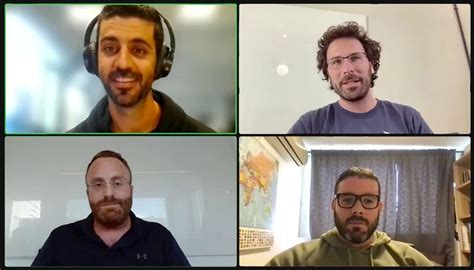The recent acquisition of Run:AI by Nvidia marks another milestone in the impressive trajectory of Israeli startups in the global technology landscape. This development may not be surprising to those who have observed the trend of Israeli firms standing out in the intensely competitive tech sector. Their success is often attributed to a combination of high educational standards, a pervasive culture of entrepreneurship, and a strategic approach to business development that targets global markets from the outset. However, the layers of this success story are intricate and worth a deeper exploration to understand why such a small country consistently produces world-class technological innovations.
One profound influence on the tenacity and innovative spirit of Israeli entrepreneurs is the country’s mandatory military service. Serving in the IDF not only instills a strong sense of discipline and resilience but also exposes young individuals to advanced technology and critical, high-pressure problem-solving situations. This experience provides an unconventional yet powerful form of education and team-building, creating a pool of highly skilled individuals who are well-prepared to navigate the challenges of tech entrepreneurship. This unique background is often reflected in the strategic acumen and risk management capabilities of Israeli founders, setting them apart in a crowded market.
Another critical aspect is Israel’s emphasis on technical education and its robust networks of knowledge transfer. Educational institutions like the Weizmann Institute of Science are pivotal in nurturing a tech-savvy workforce, which is a fundamental driver of startup success. Parallel to this, informal networks, often bolstered by military connections, provide a framework for mentorship and support that can catapult young businesses to the forefront of their industries. The role of military units such as Unit 8200 in forging these networks is notable, even though its impact might sometimes be overstated in public discourse.
Unit 8200, often compared to America’s NSA, is reputed for merging brilliant minds in fields such as cybersecurity and data analytics. The alumni of such units frequently transition into civilian entrepreneurship, bringing with them not just technical skills but invaluable networks of potential investors and partners. This transition is facilitated by a culture that not only values security and technological supremacy but also enterprise and innovation. The result is a self-sustaining cycle of innovation, funding, and commercial success, further catalyzed by the close-knit nature of Israeli society.
Moreover, the mindset instilled by Israel’s educational and military institutions is complemented by a broader national ethos that values persistence, agility, and directness. These characteristics translate effectively into business practices that prioritize swift, customer-oriented product iterations, allowing Israeli companies to adapt quickly and effectively to market needs. Ventures often promise and deliver on ambitious technological solutions, sometimes jumping ahead in innovation cycles — a practice visible in sectors from cybersecurity to artificial intelligence.
Economic policies and government incentives also play a substantial role in incubating high-tech industries. Israel spends a considerable portion of its GDP on R&D compared to other nations, and this investment pays dividends in terms of technological advancements and the entrepreneurial spirit. Support extends to financing new enterprises through various stages of growth, leveraging both public funds and private venture capital, which is often readily available through a network that spans globally, especially in the United States.
There’s also a significant strategic element in how Israeli startups position themselves in the global market. Due to geopolitical and economic factors, Israeli companies often look abroad early in their lifecycle. This global perspective not only opens up broader markets but also diversifies risk and increases the potential for substantial financial backing. It contrasts with the approach seen in many other parts of the world where startups may initially focus more narrowly on domestic markets before scaling internationally.
In conclusion, the secret to the success of Israeli startups lies in a complex, multifaceted blend of cultural strength, strategic state policies, superior education, and a globally integrated outlook. Together, these elements foster an environment ripe for technological breakthroughs and entrepreneurial ventures. As countries around the world seek to nurture and expand their own tech sectors, the model provided by Israel’s dynamic ecosystem offers numerous valuable insights worth considering.


Leave a Reply